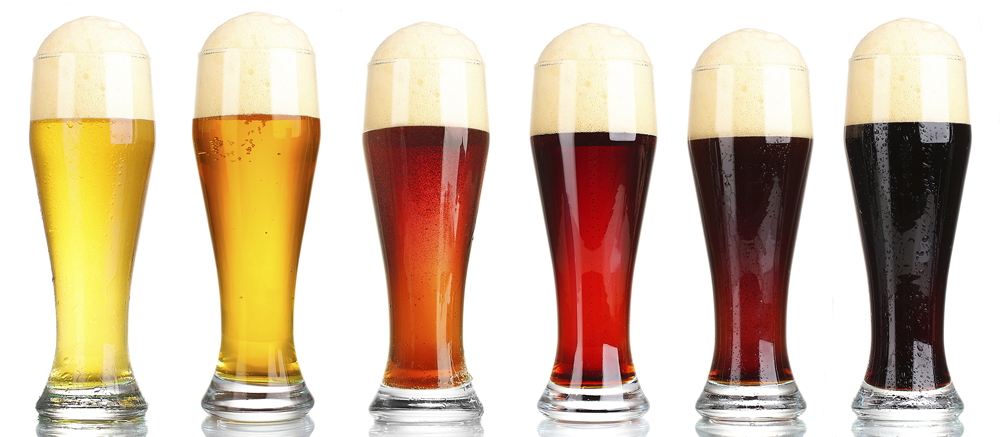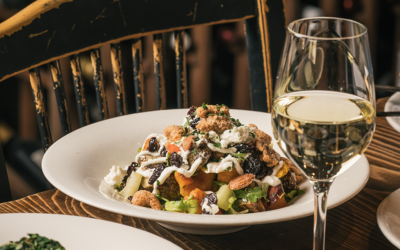To NOCO brewers,
sustainability isn’t just good for the environment.
It’s also good business.
Story and Photos by Dan England
The name of Scott Pell’s brewery brings to mind flowing fields of golden grain. But inside, it looks more like an antique store.
To be fair, the tasting room at Green Earth Brewing Company is clean, not cluttered, and the 120-year-old building could be featured on a HGTV show about remodeled bars. Pell opened in December 2017 in downtown Greeley after he stumbled across a tasty dark malted brew. We will get to that in a bit.
The actual bar and tabletops come from reclaimed doors, one of which he got out of his neighbor’s dumpster. He uses glass jars for light covers and chairs donated from Old Chicago (though that cost him a donation to the pizza place’s annual Thanksgiving charity dinner). The beer taps came from another brewery, and the bar’s footrest is an old pipe. The bar top used to reside in an old Greeley department store that had a soda fountain.
Everything at Green Earth, including the ingredients used to make the beer, has been repurposed, reused or recycled at some point in its life span.
Pell admits he named his brewery to stand out among the crowded Colorado craft beer industry, but “Green Earth” also matches his convictions. From the time he made his first batch of homebrewed raspberry beer back in 1995, he’s tried to minimize the waste he produces. At a time when most DIY brewers were just trying to figure out how to make an IPA, Pell (drawing on his father’s love of organic gardening) put his spent grains into gardens, used the wastewater to soak his plants and bought his grains and hops from local producers, even when he could get them cheaper from Germany.
One day seven years ago, Pell went out to buy some supplies for a light brew, only to find those products out of stock. On a whim, he instead grabbed ingredients for a heavy stout with three different hops and English-style yeast. The ale was surprisingly delicious, almost as if fate had granted him a favor for his good stewardship over the years. Family members who sampled the beer urged Pell to start selling it commercially. He began planning Green Earth in 2012, brewing the stout from the notes he’d scribbled in the margins of a light beer recipe. He gave it a cool name: Barb Wire Black Ale. It is now his flagship beer, his Fat Tire or Juicy Bits.
Pell puts a lot of thought into naming his beers, often weaving in subtle allusions. For example, his “Simplify” IPA refers both to Thoreau’s nature-friendly philosophy and to the drink’s clean, easy taste. But he knows that, even with a name like Green Earth, he can’t claim a monopoly on environmentally conscious brewing. Not in Northern Colorado, anyway.
In fact, he belongs to a long line of NOCO sustainable brewers. The trend encompasses small operations like his one-man show, mid-sized power players such as WeldWerks and Left Hand, and giants such as New Belgium. They don’t all call themselves “Green Earth,” but they do market their green efforts, hoping to appeal to environmentally aware consumers.
Pell, who works part-time as a school counselor, doesn’t believe many breweries his size recapture and reuse water, as he does. He’s also hoping to purchase solar and wind credits. His overall approach doesn’t necessarily stand out in Colorado, but that doesn’t worry him. It makes him proud. He brags on New Belgium, for instance, and appreciates that others share his own goal of producing good beer in a spirit of good stewardship.
“Maybe what we’re all doing is just a drop in the bucket,” Pell says. “But then again, maybe not.”
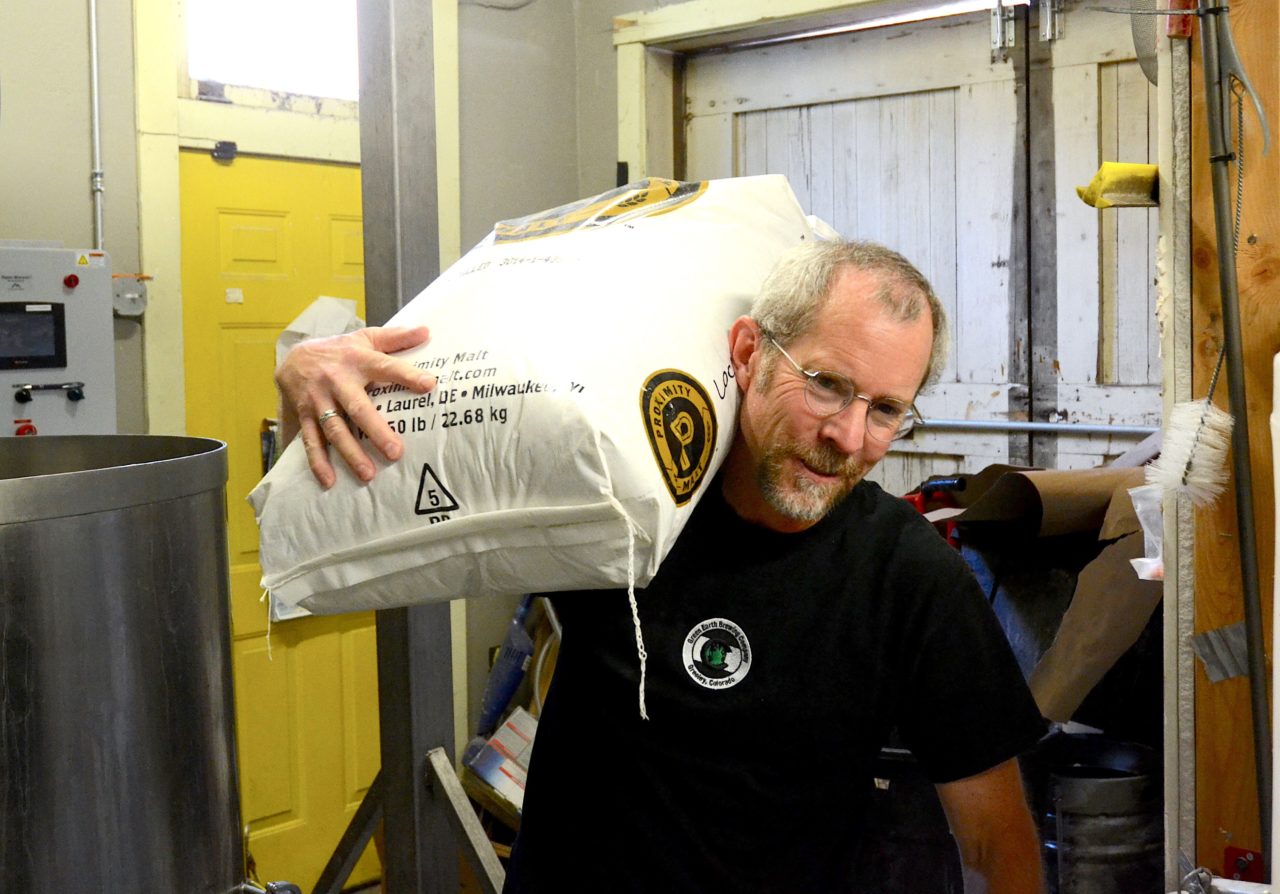
Sustainability comes first at Scott Pell’s Green Earth Brewing Company.
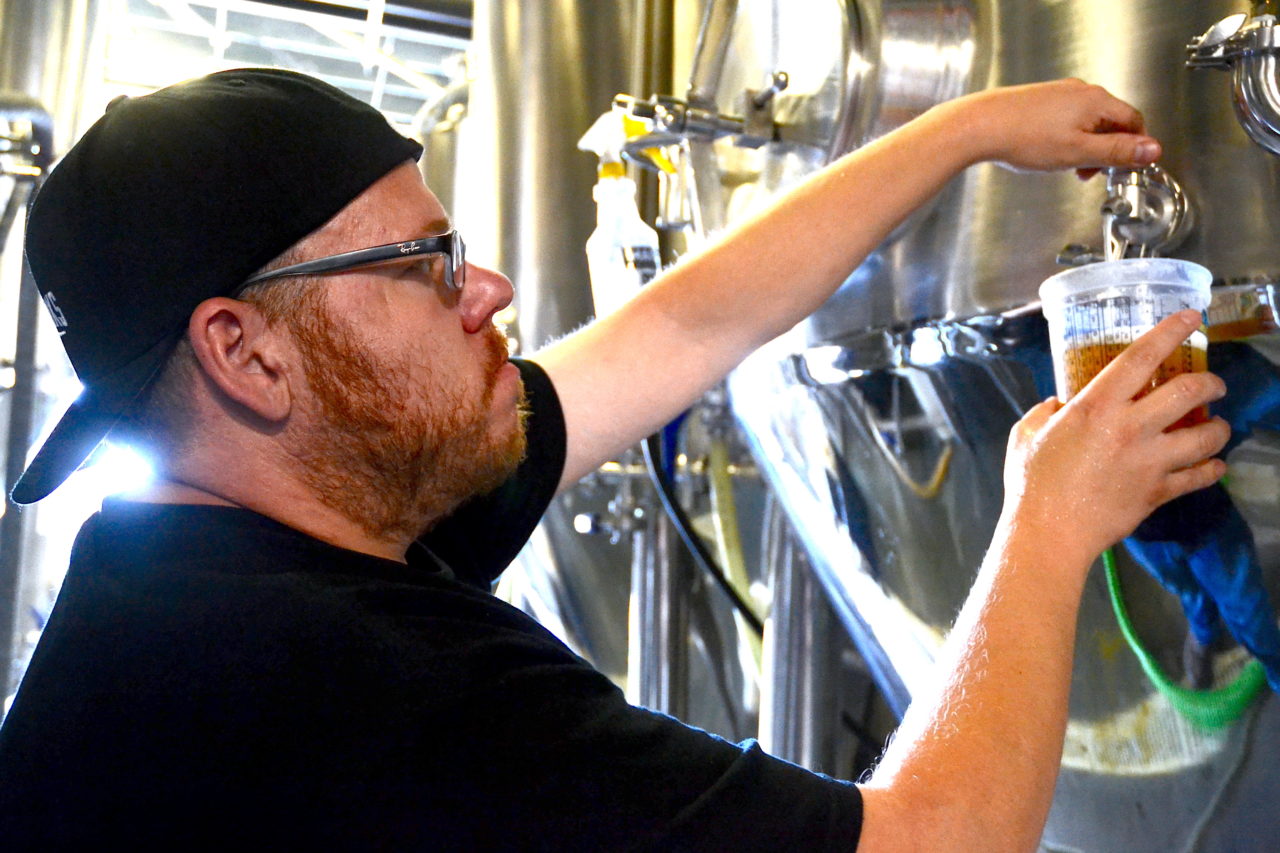
WeldWerks has won awards from the World Beer Cup, Great American Beer Festival and Zymurgy.
Even if a NOCO brewer didn’t care about sustainability, they’d have a tough time ignoring it completely. New Belgium gave them little choice.
Kim Jordan and Jeff Lebesch first brewed beer in their basement using a scrap-copper heat exchanger on top of their boiler and a trash can that preheated the water for the next batch. In 1991 they founded New Belgium in Fort Collins, began selling 40s out of a space the size of a broom closet and established environmental stewardship as one of the brewery’s core values. The heat exchanger from their humble beginnings sent a message to the industry.
“We believe anyone starting a brewery can and should strive to be sustainable,” says company spokeswoman Leah Pilcer.
Since then, the company has become a national leader in the craft beer industry, not only for its commercial success but also for its commitment to environmental values. That commitment goes back a long way and permeates the organization’s culture. In 1998, New Belgium’s employees voted to forgo profit sharing so that the brewery could afford to bring in wind power.
“Since then, the sustainability movement has grown dramatically,” Pilcer says, “and we’re seeing a lot more discussion around the topic, both within the beer industry and among beer drinkers.”
The brewery now has solar panels, creates electricity by capturing energy from its waste products, and uses the same heat exchanger method of capturing and repurposing energy in the brewing process. The company co-founded the Glass Recycling Coalition after a 2007 study commissioned by New Belgium found that glass production was one of the biggest contributors to its carbon footprint. It funds, creates and markets many bicycling opportunities. It is certified as a zero-waste facility.
In addition to conserving resources and minimizing waste, these practices yield significant cost savings. Some might argue they’re the only way a brewery can make a profit. Breweries also bank on the marketing opportunities that come from sustainability: Craft beer drinkers, more than most consumers, care about sustainability and may choose their beer because of it. In a saturated beer market, where it’s hard to discern one brand from the next, consumers often follow their hearts, not just their taste buds. At Green Earth Brewing Company, customers even volunteer to help Pell run the business because they share his dedication to stewardship.
There are many other examples of customers choosing sustainability first, says Michael Mosher, head brewer of the brewing laboratory science program at the University of Northern Colorado, which allows a student to get a certificate in brewing.
“They’re matching what the customer base wants,” Mosher says. “Craft beer is not cheap. It appeals to an audience who is buying beer not just for the flavor but for the message the company is putting out there. If you knew a company was sustainable and another wasn’t, you’d favor the sustainable one, wouldn’t you? I would.”
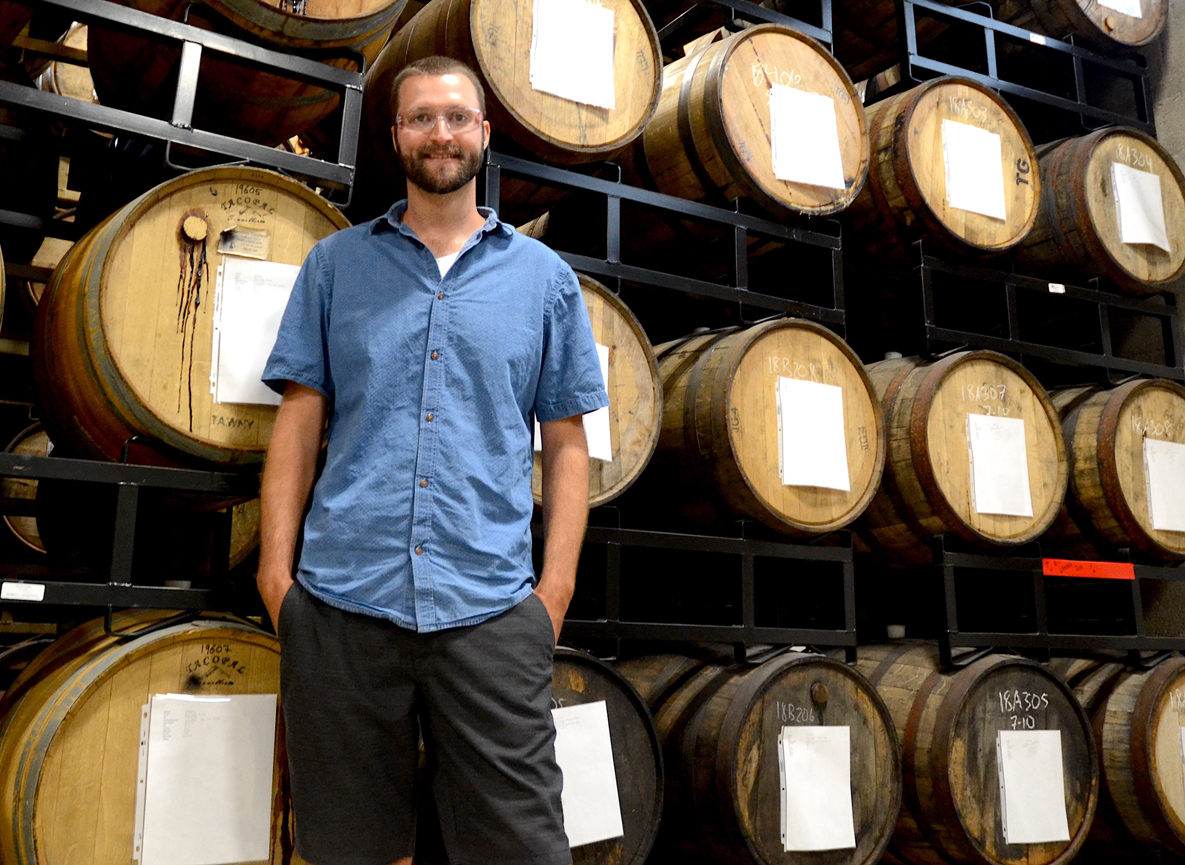
Neil Fisher co-founded and co-owns WeldWerks Brewing Company.
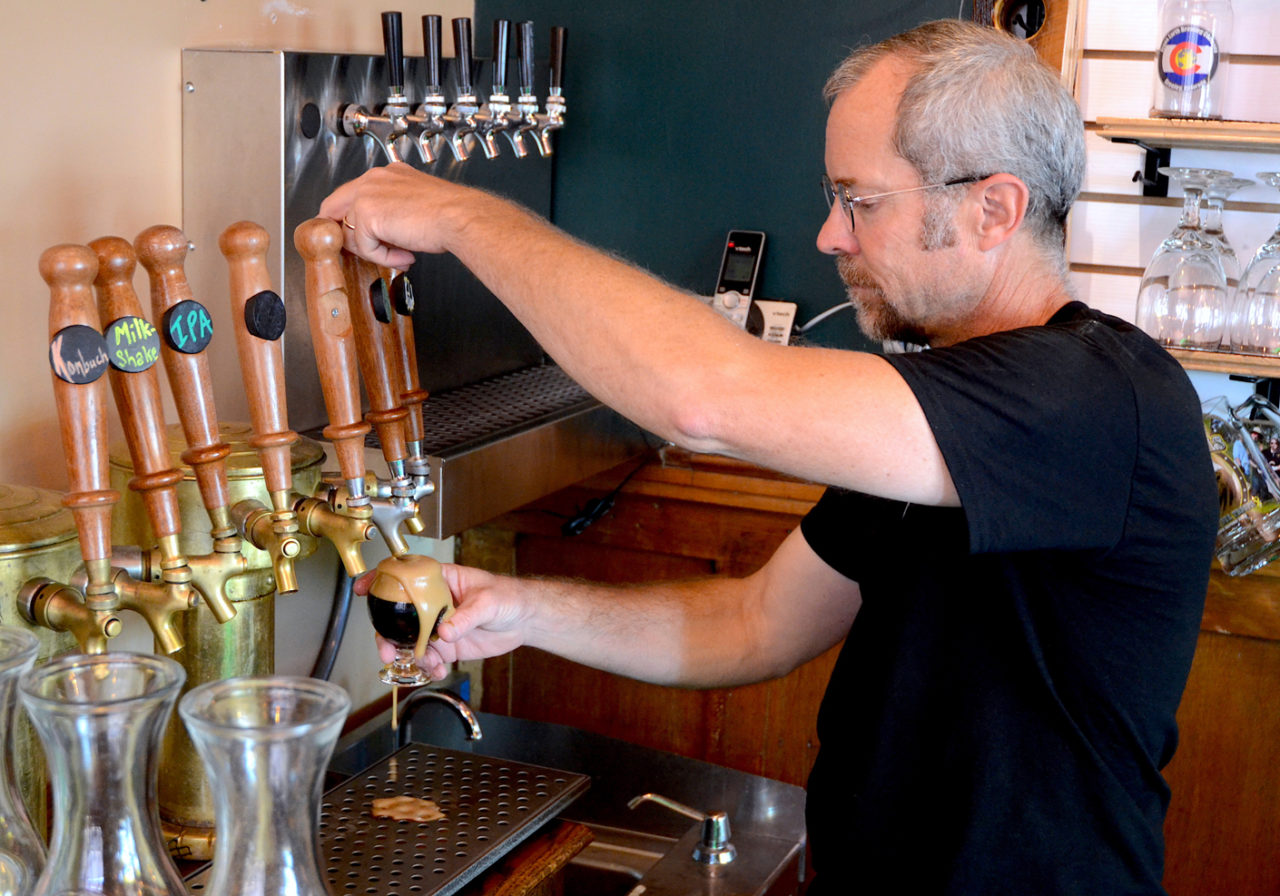
Pell pours one of Green Earth’s signature Barb Wire Black Ales.
That’s especially true in Colorado, he adds, and it’s one reason why Colorado breweries tend to focus on sustainability more than others. “Honestly, I still think it’s a minority thing from what I see,” says Lawrence. “But I do think Colorado tends to be especially concerned about it. I think locally it’s more popular than it is nationwide.”

WeldWerks’ beer menu constantly rotates, but the eco-friendly commitment never changes.
“We’ve often said that we’re successful not in spite of our environmental and social practices,” Pilcer says, “but because of them.”
Before you begin to think Colorado breweries are actually the Avengers, keep in mind that sustainability isn’t simply a nice thing to do. It’s probably necessary.
Breweries operate on thin profit margins, and the smaller the brewery, the thinner the margin, says Mosher. Sometimes the difference between a profit and a loss is the energy, water and material you save by being sustainable.
“You really can’t afford not to be that way,” Mosher says. “If you aren’t trying, it’s shocking how much water you can use. You can use five times as much water as the beer you produce. But you can get [the ratio down] to 2:1 with some effort.”
Energy is another big cost, but breweries have learned to pull the heat from the wastewater to cool the beer and use that heat or water to start the next batch. Heating water, as you know from your shower, takes a lot of energy. Solar power is another way to save energy, and simply turning off the lights at night can save thousands. As Pilcer notes, “Investments in efficiency and heat and water generally have good paybacks.”
That’s why Mosher informs his students about sustainability at every step of the brewing process, but he prefers to present it as another option, not as the only one. He wants to stay neutral, he says, and he thinks students need to figure out for themselves whether it’s worth the investment. Some sustainability practices are more expensive, after all, and may not be wise for a brand new business right away.
But Neil Fisher, head brewer of the WeldWerks Brewing Company in downtown Greeley, says breweries may not need the most expensive practices to be as efficient as possible. A nationally ranked operation famous for its innovative products and Juicy Bits IPA flagship beer, WeldWerks cycles through more than 125 different kinds of beer throughout the calendar. It’s able to do this by using production data from its own operation (and those of other breweries) to make optimal use of all the fruit, grains and Nutella (yes, really) that go into all those beers.
“We don’t want to take water or power for granted,” says Fisher, “and we don’t ever want to assume there’s not an impact to what we do. The less we use, it’s a no-brainer for business, but we’re aware of water in particular. Water usage is big, and we have to make sure we have good, clean drinking water and that we [are] careful about what goes down the drain.”
WeldWerks has a sustainability team to measure those impacts, and he’s proud of the brewery’s innovation, one of its core values, which also saves materials. He’s not afraid to dump a recipe that didn’t work out. But crunching those numbers usually means it will work out, at least to the point where the brewery isn’t afraid to serve the batch.
“Usually first-time brews turn out really well because we have experience with experimentation,” Fisher says. “I think we can get creative, as long as we are willing to change it in a different direction. If it’s not going in a direction we want, there are many times we can save it. Our ability to stay agile is a huge advantage.”
Many breweries understand that great water makes great beer, and Colorado’s water, straight from the mountains, is some of the best in the country. Taking care of that input is mandatory for a good product.
“What we do is so resource intensive,” Lawrence says, “but it’s those resources that make us stand out.”
Pell knew as much years ago when he began brewing, and he’s more cognizant than ever as the head of Green Earth. He just turned a corner a couple months ago: He’s starting to make a profit. He hopes to employ some people soon. The word is getting out.
Late last month he put on a pub talk about the Poudre River and ways to preserve it. His customers get excited to hear about his efforts to be sustainable. He hopes that one day the business can sustain him as well.


